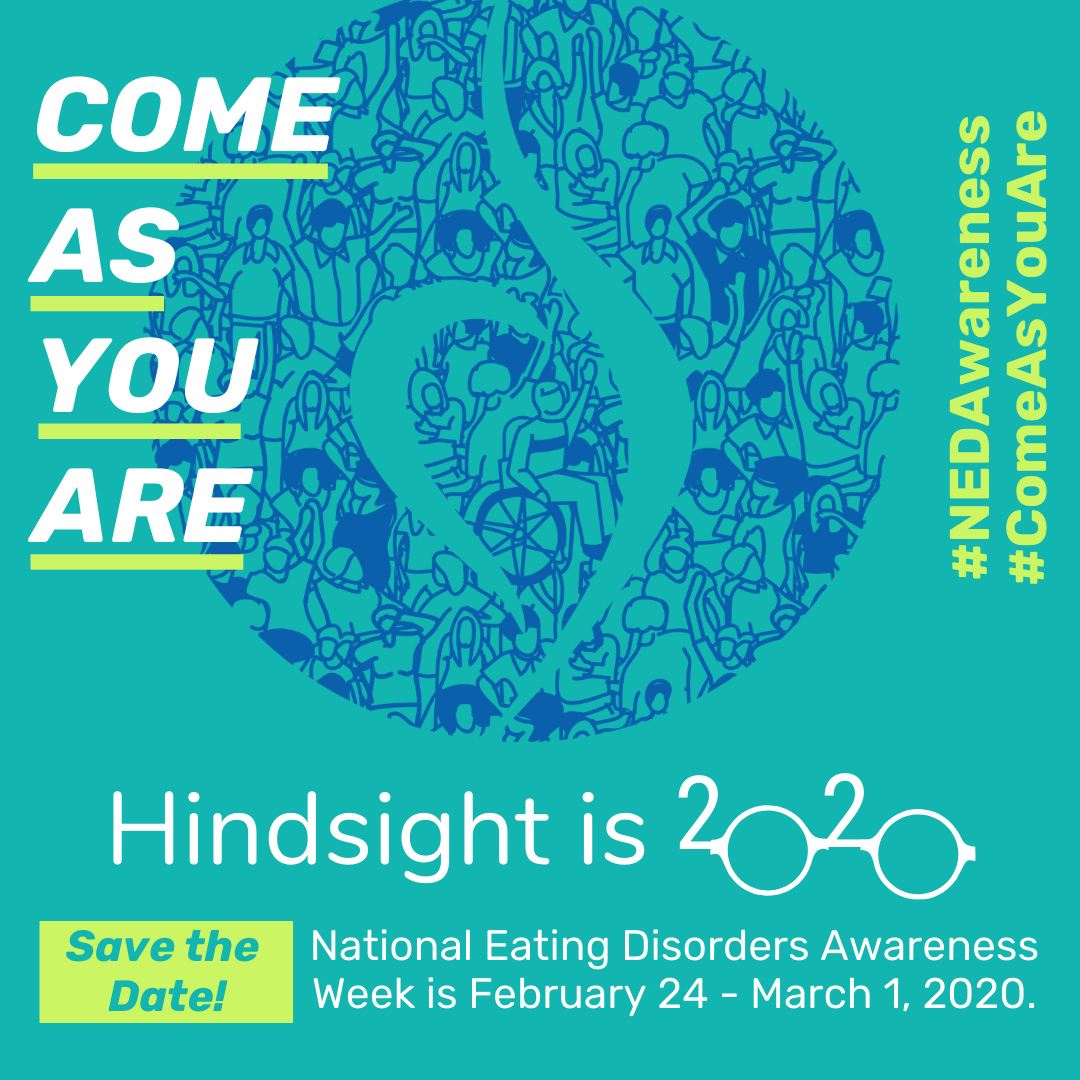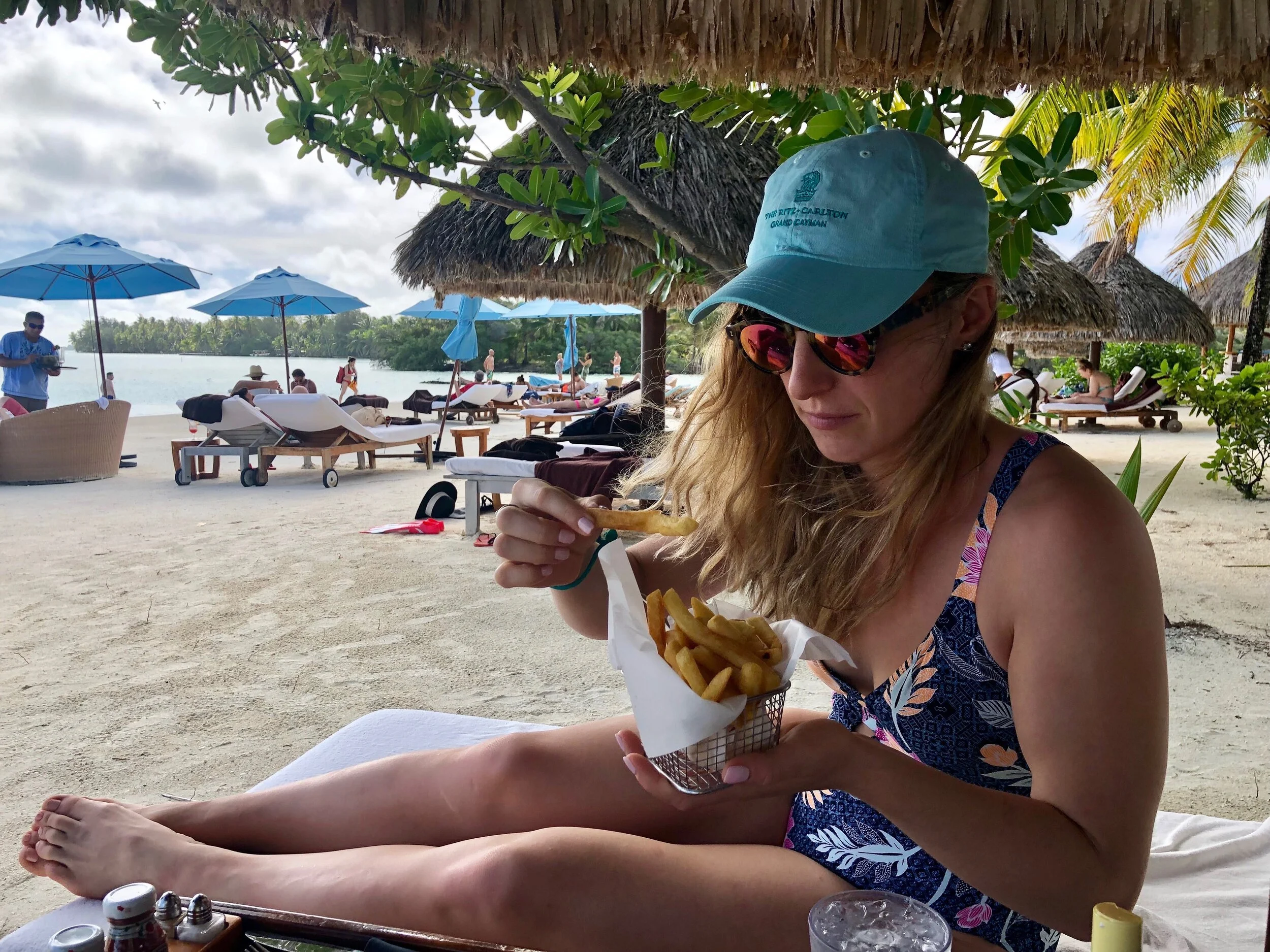What is Atypical Anorexia? (And why you deserve support)
Shout out to my lovely student intern, Sarah Butler, for her contribution to this blog post! She is a current dietetic student at my alma mater, Simmons University, and I am so grateful to have her.
National Eating Disorders Awareness Week (#NEDAwareness) is February 24 - March 1, 2020, and as it approaches, it is important to remember that no matter what your size, gender identity, background, age or ethnicity, your story is valid. This year’s theme is Come as You Are: Hindsight is 20/20, emphasizing the steps individuals have taken towards recovery as well as continuing to encourage those from all walks of life and stages of recovery to continue overcoming their challenges. Eating disorders can be widely misunderstood; in part because of the specific images and ideas that the media spews about what a person with an eating disorder looks like. This lack of representation can cause people who do not fit that image to doubt whether or not they have an eating disorder because they feel they are not sick or thin enough. Feeling invalid only hurts more, and can make those suffering to not want to reach out to others for help because they're worried about being told, based solely on their body size, that they aren’t sick enough to need help. The truth: the suffering that people can endure cannot be measured by body size. It is real and can have serious health consequences. Most importantly, if you are suffering, you are worthy and deserving of help….regardless of your size or whether or not you fit within the narrow DSM-5 diagnosis criteria.
This is why for this week, we would like to shed light on atypical anorexia, and why someone suffering from an eating disorder might not receive the support they so desperately need (and deserve).
Put simply by the National Eating Disorder Association (NEDA), atypical anorexia refers to “an eating disorder in which a person meets some, but not all, of the diagnostic criteria for anorexia nervosa.” Atypical anorexia falls under the DSM-5 heading of other specified feeding and eating disorders (OSFED), when patients engage in all the same behaviors and have equally severe body image distortions and fears as those with anorexia nervosa, but are not formally underweight. Patients may lose a significant amount of weight and may be underweight relative to their typical body weight, however weight loss does not occur in all individuals. Therefore, the whole person must be taken into account including all medical and psychological markers.
Fact: Atypical anorexia is by far more prevalent than anorexia nervosa, occurring in up to 3 percent of the population.
From Dr. Jennifer Gaudiani’s book, Sick Enough, “The fact that these individuals receive the designation “atypical”, despite representing by far the greatest number of patients with symptoms of anorexia nervosa, speaks to the ongoing problem of size stigma in the medical and mental health communities.”
That’s right. You do not have to be underweight to be diagnosed with an eating disorder pertaining to anorexia. This is a common misconception.
A lack of understanding also exists around the full gravity of the impact that this eating disorder can have. But get this: Research studies have not found a difference in the medical and psychological impacts of anorexia and atypical anorexia. Those with atypical eating disorders (meaning not meeting all diagnostic criteria, such as not being formally underweight or purging as often), have double the death rate of non-eating disordered peers.
Countless individuals suffering from an eating disorder may go without treatment or support due to these narrow diagnostic criteria that often consider a low BMI as a requirement.
Behaviors that are considered pathological and symptomatic of an eating disorder are often encouraged in those in larger bodies. Read that again. People who don’t necessarily look sick or emaciated and who are engaging in disordered food and exercise habits or are suffering from the effects of an eating disorder often go overlooked or have their experiences brushed over and minimized. Perhaps you have expressed your restrictive eating patterns concerns to a doctor or other health care professional only for them to point to the number on the scale as an indication that you’re fine or even to “keep it up”.
Health care providers do their patients and clients a great disservice by overlooking these physical, emotional and psychological symptoms by narrowing in on body size. These standards cause people to delay seeking treatment out of fear that they aren’t sick or thin enough to deserve the support, and may subsequently propel some eating disorders deeper.
This is why it is crucial that people with the signs and symptoms of atypical anorexia are taken seriously, and are given the care and treatment they deserve. Spreading more awareness can help to get rid of weight bias surrounding anorexia, and establish representation for all of those who are suffering so that they can find validity in knowing that they are not alone, and ultimately find strength to seek recovery.
How you can do your part:
Avoid commenting on others’ bodies. Those seemingly harmless remarks of “Oh ,you look great, have you lost weight?” or, “I wish I was as skinny as you!”, can be potentially harmful and triggering, not to mention make both parties feel self-conscious. You never know what’s beneath the surface. Those comments could be just the validation that an individual was looking for.
Compliment people on things that have nothing to do with their appearance. Did they recently achieve something professionally? Go on a trip you’re curious about? Do something noteworthy? Dig deeper than the facade!
Avoid discussing your weight or dieting pursuits with others. Your intentions may be sound, but its better just to leave weight and diet talk off the table. Everyone will be grateful for the change of pace!
If you’re a parent, be conscious of how you talk about food and your body at home. Language matters, and the best way to help your child have a healthy relationship with food and body is to model that with yourself.
Know the signs and symptoms of eating disorders so you can recognize them when you see them. If someone you care about is showing signs, express your concerns. No one deserves to struggle in silence.
If you or someone you love is struggling with an eating disorder, reach out. You deserve help. There’s no such thing as being “sick enough” for treatment. Recovery IS possible, and while the process is not easy or linear, there is so much hope.
Resources:
Intuitive Eating by Evelyn Tribole and Elyse Resch
Eating in the Light of the Moon by Anita Johnson
8 Keys to Recovery from and Eating Disorder by Carolyn Costin
Overcoming Binge Eating by Dr. Christopher Fairburn
Sick Enough by Jennifer Gaudiani
Body Respect by Lindo Bacon
Podcast: Food Psych by Chrissy Harrison
If you are struggling with an eating disorder but unsure of where to get help, consider calling the toll-free helpline at the National Eating Disorder Association at 1-800-931-2237. Helpline volunteers are trained to help you find the support and information you might need to begin your recovery journey. You can also use the NEDA Screening tool to help you determine if it’s time to find professional help.







